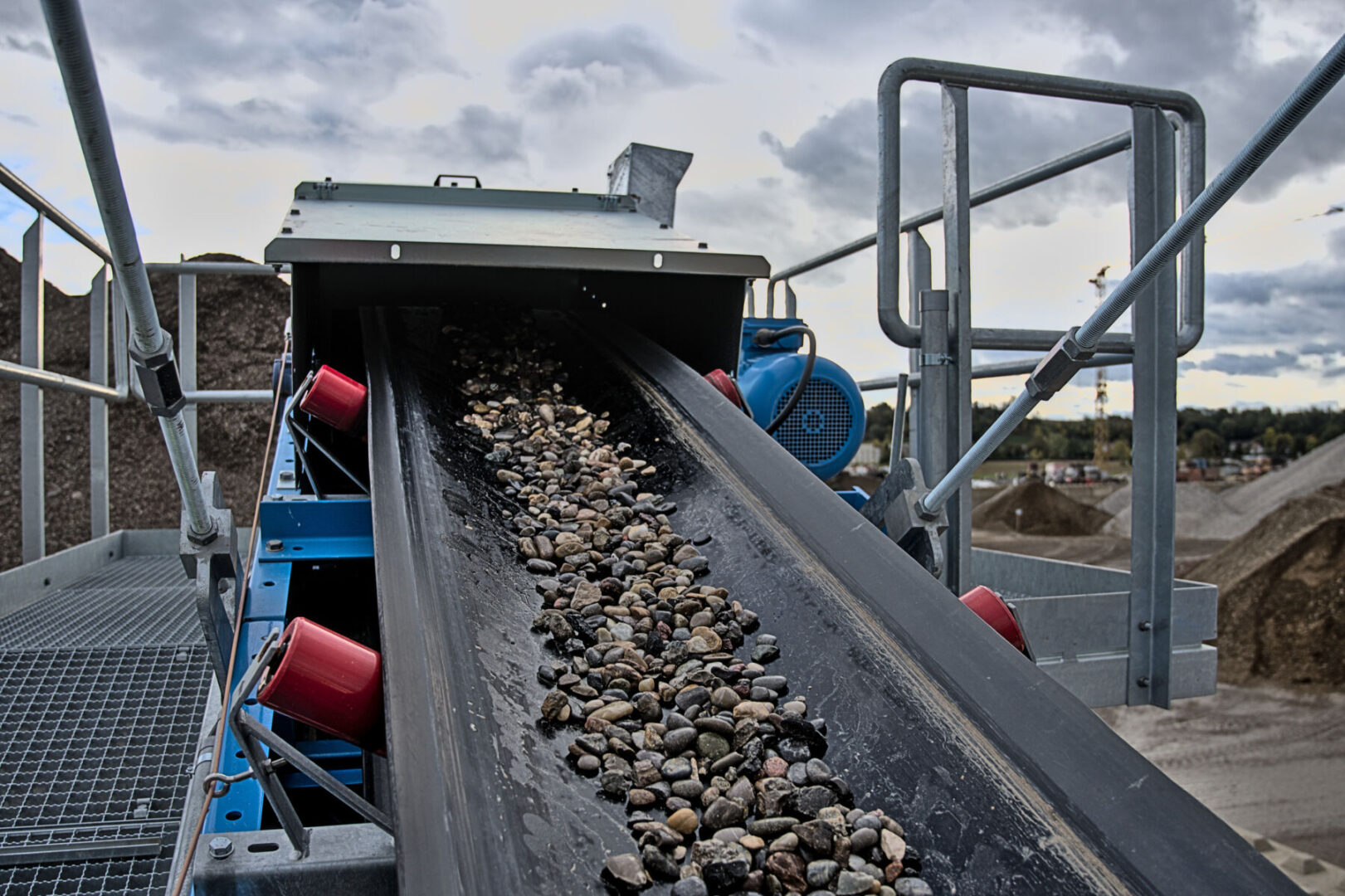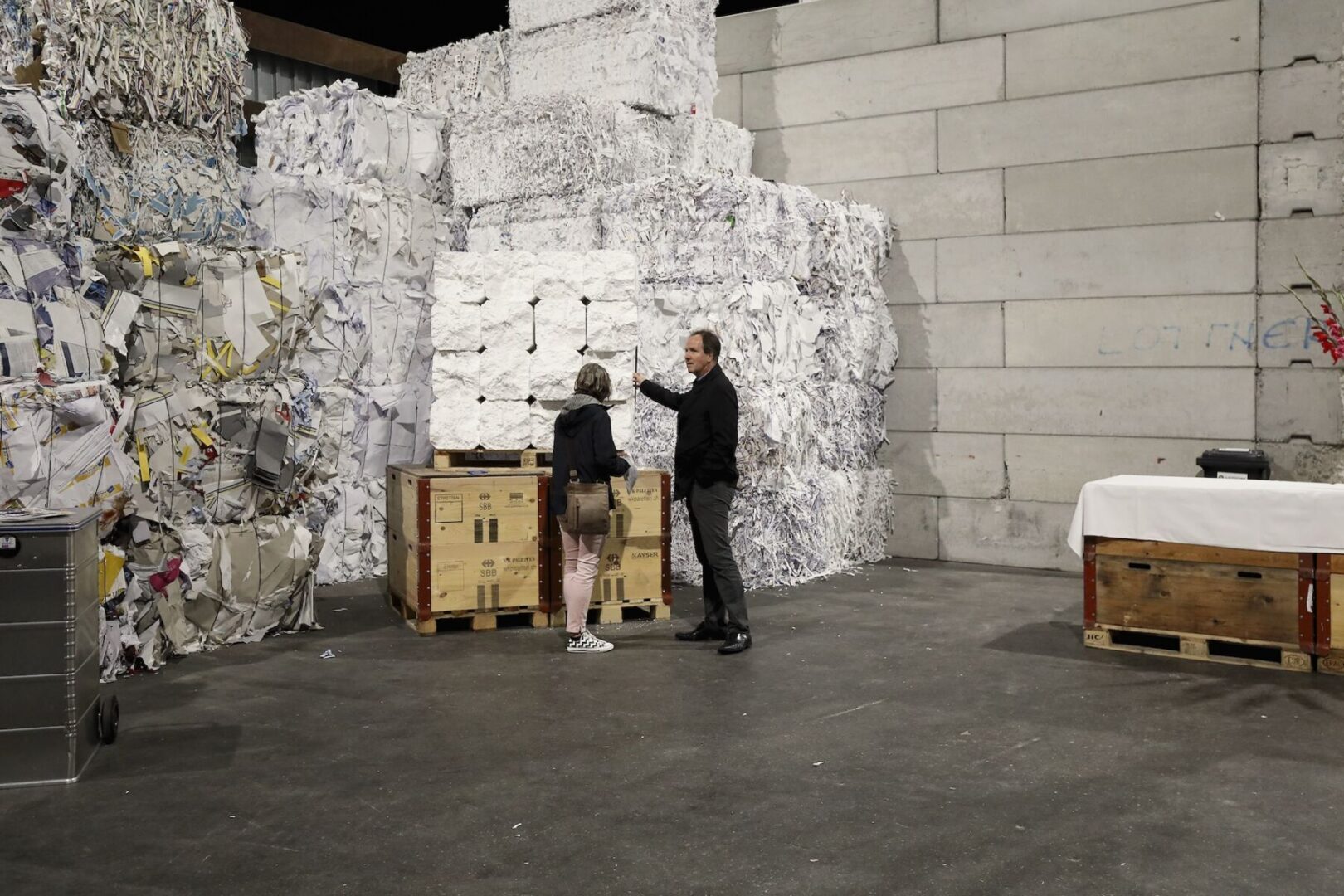Recycling and the Circular Economy
On 20 February 2019, the city of Basel was the first canton to declare a climate emergency, followed seven days later by the first municipality in Switzerland to do so, Liestal. Both Basel-Stadt and Basel-Landschaft set out their targets for reducing CO2 emissions in their climate protection strategies. In both cases, key fields of action include the building sector and environmentally friendly construction. The region already boasts a number of flagship projects. For instance, the University of Applied Sciences and Arts Northwestern Switzerland (FHNW) campus in Muttenz comprises almost 60% recycled concrete and the new Basel City Office for the Environment and Energy building is made of 74% recycled concrete. The companies that recycle old building materials and create a circular economy for building materials make such buildings possible in the first place.
Two of them will be giving an insight into their everyday workings at Industry Night. At KIBAG in the Bachgraben area of Allschwil, you can find out how simple raw materials become the robust concrete you encounter in many places each day. You can also cast your own concrete block and take it home with you as a handmade souvenir. Given that non-recycled concrete is one of the biggest CO2 emitters in the construction industry, the company has launched the Kibeco brand as a showcase for innovative, sustainable solutions in this field. Kibeco concrete offers hope for the future by capturing CO2 from the atmosphere. Meanwhile, a company next door, habö, is also making an important contribution to a more sustainable recycling process. habö is part of the Tozzo Group and processes vast quantities of material in Allschwil every year in order to return it to the construction materials chain. The company recently commissioned a new state-of-the-art excavation washing plant at its gravel works. At Industry Night, you can experience it up close and wander between conveyor belts, screening plants, and material crushers.

More than 80% of our waste is generated on construction sites. Construction waste is the biggest, but not the only, challenge when it comes to waste management. Switzerland is one of the European countries that produces the most municipal waste. This includes the waste that each of us produces every day. In 2023, over 70,000 tons of household waste was produced in the two Basel areas alone, although this figure has been falling for several years. Compared to other European countries, however, Switzerland is a leader in recycling. Despite the municipal waste it produces, it also recycles and composts a good half of it. Companies such as Lottner and OFFCUT make an important contribution to its recycling efforts.
Lottner began dealing in used materials at a time when the term “recycling” did not yet exist. In the interwar period, the company moved to the St. Johann district and subsequently began to grow, founding subsidiaries, building modern plants, and creating new waste disposal services – including, most recently, plastics recycling. At Industry Night, we can experience their everyday work and follow specific examples of the circular economy. This includes a panel discussion at 8pm on the challenges and opportunities of the circular economy with cantonal councillor Kaspar Sutter, head of the department of economic, social and environmental affairs.
Meanwhile, everything at OFFCUT revolves around upcycling. The small company at the Dreispitz site collects offcuts and production surpluses that would normally end up in the bin and puts them back into circulation. At Industry Night, you can browse through their materials market until 10 pm and stock up on fabrics, buttons, bag buckles, and much more. The staff will be happy to give you creative ideas for recycling.
The topic of the circular economy is ever-present in our busy lives. At Industry Night, you can experience first-hand what this term actually means and how important such cycles are for a sustainable economy.

Sustainable concrete
KIBAG
Shuttle:BLearn more about the innovative technology of Kibeco concrete and how it helps bind CO2. Experts are available to answer any questions.
17:00 – 00:00
Follow the cycle of building materials
habö
Shuttle:BDuring this tour, we meander between conveyor belts, sieving plants and material breakers and discover the world of the sustainable building material cycle.
17:00 – 00:00
Max. visitors
10
Protective clothing
Sturdy footwear. All other protective clothing will be provided on site.
Panel discussion with Councillor Kaspar Sutter
Lottner
Shuttle:BAt the panel discussion with Cantonal Councillor Kaspar Sutter, Head of the Department of Economic, Social and Environmental Affairs, the participants will explain current challenges and opportunities for the circular economy.
20:00
Input
OFFCUT
Shuttle:DGet to know OFFCUT and creative material recovery, and take a look behind the scenes.
18:00 – 23:00
every hour on the hour
Max. visitors
10
Note
English 19:00, 21:00, 23:00